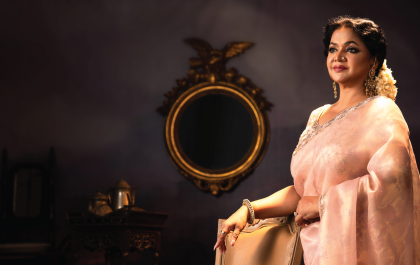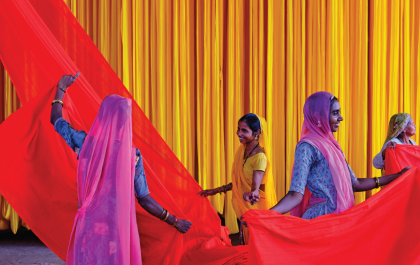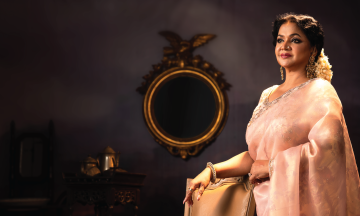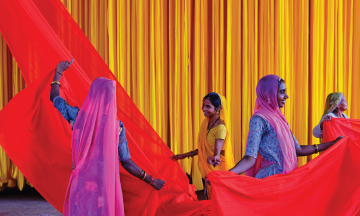By Sameirah Nasrin Ahsan
Female fandoms are often on the receiving end of ridicule and disrespect. Not even their idols are exempt
Close your eyes and imagine these scenes:
Ecstatic men and boys in sports jerseys sprinting down streets, celebrating a win, waving flags of their favorite sports team, wearing team colors, hugging, chanting and sharing their common love for the sport.
Men in an adrenaline-charged rock concert, slamming aggressively into each other in a mosh pit, connecting with their brothers in the fandom, singing to the stage and losing themselves to music they love. Euphoric, electrifying, unforgettable.
Men and boys collecting merchandise from their fandoms, covering their walls with posters representing their newest obsession, and basing their entire personalities on two electrifying lines from a heavy metal song or their favorite action movie/ anime sub-genre.
All of the scenarios described above are perceived as normal fan behavior, as they should be. Hobbies are an essential part of a person’s wellbeing and growth. They are a remarkable source of energy and should be encouraged, celebrated and shared. Now, dear readers, let’s imagine the same scenarios with the gender reversed. Imagine women and girls at a pop concert, crying, shrieking, waving light sticks. Imagine female fans holding their collective breaths for the almighty final chorus to come down so they can scream to the heavens, an honest and fearless expression of their love for the singer and their music. Imagine women in cosplay costumes and dyed hair, holding up placards with passionate messages for their favorite artists. Imagine them covering entire walls and journals with posters and images of their favorite singers and performers, carrying their photographs in wallets and collecting merchandise as a hobby; and everytime they speak they make sure to tell you about the brilliance and artistry of their favorite stars.
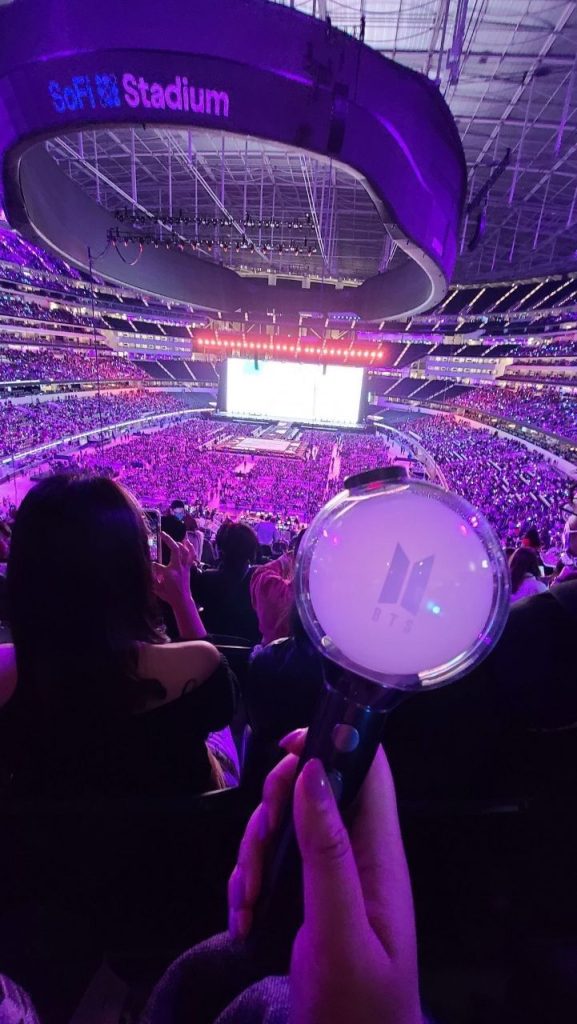
Fan behavior, sexism and gatekeeping
I could argue that the behaviors displayed by both genders are exactly the same. But mainstream media and dominant cultural politics seem to think otherwise. Throughout history, fangirls have been described as fanatical, immature, obsessive, desperate, shallow, hysterical females who lack the mental capacity to understand the technical aspects of their fandoms be it music, gaming or sports. This however, does not translate to male fans who are for some reason bestowed a status of higher intellect by their fandoms and society in general. Unlike female fans, male fans are often free to enjoy their hobbies without ridicule. Why is the image of women and girls shedding tears over a pop-group’s hiatus considered crazy, obsessive, immature and fanatical? And men and boys crying at a cricket match or at the retirement of their favorite batsman considered devotees of the game?
“Oh you enjoy rock [music]? Prove it. What is Anthony Kiedis’ neighbor’s distant uncle’s best friend’s father-in-law’s last name?”
As a female fan of diverse fandoms myself, I have often found the need to defend my relevance as a fan. The general perception of female fan behavior (which is no different from male fan behavior in theory) is considered pathological, a plague upon society and the self. We live in a society, where the interests of men are considered the default, it is the standard that one must maintain to deserve respect. Matisse DuPont, a Boston based gender consultant believes that feminine interests are often under attack in order to maintain patriarchal social systems. According to her study, anything enjoyed by girls and women are automatically labeled “cringe”, “over-hyped” and “sappy” whereas masculine fandoms are established as universal and relevant.
Dear reader, I do not wish to take a dig at men and boys; I simply wish for you to consider the possibility that we as a society might be extremely inconsiderate to the interests of women and girls. Can you think of one activity that girls are predominantly interested in but are not ridiculed for it? Can you name one trend that women can enjoy without facing backlash? From gaming to movies to sports and music, I don’t think women are free to enjoy any activity without being labeled “poser” or “fake fan” or having to go through an incessant amount of unrelated questioning and tests to prove themselves as “true fans”. The insane amount of gatekeeping that occurs in supposed male-based fandoms is alarming. But women are not free to enjoy female-based fandoms either. Take Korean pop (K-pop) for instance: In our society, K-pop is considered music made “for women”, and as a result it becomes the butt of many jokes as being “silly” and “lacking depth” when in reality most of it is anything but that.

Female fans are not superficial
A timely example is the status of the fans of the popular Korean boy-band, BTS (Bangtan Sonyeondan). The BTS “Army” – as the fans call themselves are often reduced to a pulsing mass of hysteria by mainstream media and haters. Not only has the band been subjected to racist rhetoric, their exponential popularity among the global female population has created room for an unfair amount of skepticism and attacks. Gender politics not only discredits female fans and artists, it also makes it nearly impossible for male fans to openly enjoy the art that has been labeled by society as “female-centric.” In April of 2022, BTS concluded their 12-show world tour with a 4-day concert in Las Vegas, Nevada. Following a recent criticism of the band in an American talk show, where the host James Cordon referred to BTS fans as “15-year old girls”, BTS vocalist Kim Taehyung, requested the male fans to “make some noise”. The venue immediately erupted with loud and enthusiastic cheering from the men in attendance, leaving the band and their fans happily shocked. Park Jimin, another BTS vocalist, said in awe, “This place just sounded like the UFC.”
Throughout history, the term “rabid fangirl” has been used incessantly to discredit artists and their art. As through, music aimed at women or liked by women must be lacking in substance. It is as if to say that the female fans connect with the music purely based on superficial reasons such as the artist’s looks. If you speak to BTS fans, I can assure you that you will find out that the band’s looks are only a fraction of their appeal. Their real appeal lies elsewhere: From coming from a small sponsor with zero to no recognition, having to distribute their own concert flyers themselves, living in an 56 square-meters apartment and being dismissed and canceled by more established peers in the industry, to writing good music and producing their own songs, rising to fame and defying all expectations and breaking their own records, collaborating with the UN, speaking up for and donating to movements like Black Lives Matter and anti-Asian hate crimes, becoming global ambassadors and bringing in an estimated 3.5 to 5 billion dollars to their country’s economy annually – all in a span of 10 years, BTS truly writes the underdog story. I became a fan of the band myself when they made a conscious decision to get their lyrics reviewed by a women’s studies professor to filter out misogynist ideas. They actively incorporated race and gender equality to their work to the point where they no longer perform their old songs that had sexist undertones. If acknowledging one’s mistakes and taking the responsibility to make amends is not worthy of admiration, I don’t know what is.
Sorry not sorry
Dear readers and fellow fangirls, I don’t think we can change general perception anytime soon. Maybe one day, your great-great grand-daughter will attend a concert without being questioned or shamed, maybe she will write fanfiction and cry over actors and fictional characters without being labeled as obsessive, maybe she will put up posters of her favorite sports-star without being called shallow. Maybe one day the gap between female-centric fandoms and male-centric fandoms will be bridged; and maybe that day, the insidious form of discrimination will cease to exist. But I don’t see it happening anytime soon. Gender politics will not make it easy for our generation of women to have, celebrate and share hobbies. So how do we fight this? How do we survive a system rigged to diminish our self-worth? In my experience, ladies and gentlemen, the only way to win this is to be ourselves: fully, unapologetically and without fear. Haters might get in your face every now and then; when that happens, I urge you to borrow the words and the attitude of BTS’s Jeon Jungkook, ask “so what?” and dance away into the sunset.
Sameirah Nasrin Ahsan is a mechanical engineer in Dhaka. She aspires to be an author someday. For now, she is content with reading and sharing the stories that make her think beyond herself. For rants and book recommendations, you can follow her on Instagram: @booksnher





